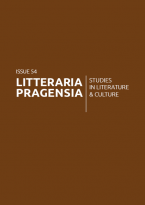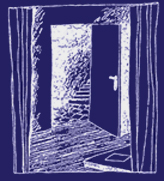
|
27.54 Wordsworth and FranceEdited by: David Duff, Marc Porée and Martin Procházka Volume: 27 Issue: 54 December 2017 (published April 2018) |
Contents
|
David Duff
,
Marc Porée
Introduction
|
1 |
|
Laurent Folliot
Wordsworth in Nineteenth-Century France: A History of Misknowing
show abstract
Wordsworth's poetry has attracted comparatively little interest in France, beyond specialised academic circles. Although such neglect might be seen as reflecting the poet's own antipathies to French literature and politics after the Revolutionary period, as well as Anglo-French cultural divergences more generally, the present article endeavours to account for it by retracing the specific circumstances of Wordsworth's early reception across the Channel. After a brief period of respectful mentions and occasional translations in French reviews, his poetry was increasingly reduced to an expression of domestic piety and quiet, hazy contemplation, at odds with the more tumultuous Zeitgeist that characterised French Romanticism in the 1830s and 40s. To a considerable extent, this was the work of Charles-Augustin Sainte-Beuve, who, although an attentive reader of Wordsworth, tended to align him with earlier, ultimately less ambitious poets such as Cowper in his attempt to legitimise his own intimist poetics. The resultant misunderstanding was strengthened by repeated analogies with Lamartine, with whom the English poet was unfavourably compared, ensuring that, by the mid-nineteenth century at the latest, Wordsworthianism in France was confined to a few parochial coteries, playing only an insignificant part in actual literary creation.
|
8 |
|
Alain Vaillant
French Romanticism and Nineteenth-Century England: An Unavowable Connection
show abstract
This essay examines the complex processes that have led to the almost systematic occlusion of the influence of English Romanticism on French Romanticism. Its first section offers a philosophical definition of Romanticism in the context of the long evolution of European societies which began with the Reformation. Three themes stand out: the utopian desire for a harmonious synthesis between the intelligible and the sensible, the ideal and the real; individualization of the feeling of the Absolute in line with the emergence of nationalism; the development of an open market for cultural goods. The second section probes the English roots of French Romanticism, highlighting French emigration to England, an increasing degree of familiarity with English lyricism and narrative fiction, and other factors. The third section explores the English "Unthought" of French Romanticism, seeking to anatomize the perplexing obliviousness to English Romanticism which has long prevailed, even amongst French scholars. The reasons are nationalistic as well as religious and political, climaxing in the condemnation of economic liberalism and consumer capitalism. The essay concludes by suggesting that the debate over which of the two revolutions has the upper hand when it comes to representing modernity - the French Revolution of 1789 or the English Industrial Revolution of the late eighteenth and early nineteenth centuries - has been won by the English.
|
33 |
|
Christoph Bode
Returning, Retrieving, Revising: Wordsworth's Life Writing as Wiederholungszwang (Repetition Urge)
show abstract
This article is not about the content of 'French' Books of The Prelude or about the centrality of the French Revolution in Wordsworth's œuvre or his life (both of which the author could not and would not possibly deny). Rather, it aims at revealing the narratological rationale of Wordsworth's dealings with the past in The Prelude by a re-reading of the so-called 'boat-stealing episode' from Book One, which is regarded as a kind of interpretive key for the rest of the epic. It hopes to show that both the watermark signature of Wordsworth's perpetual returning to the 'scene' and his idiosyncratic appropriation of ‘nature' (and 'history') are already pre-figured in an episode that can be said to contain the genetic code of the whole Prelude. The article ends with an upbeat appeal to lay the haunting spectre of History to rest.
|
53 |
|
Martin Procházka
Imagining the Difference: Prefigurations of Poststructuralism in The Prelude
show abstract
Using Deleuze's concepts of "involuntary," "rhizomatic" memory, of "Essence as the highest and absolute Difference" and of expressive "intensity" based on imperceptible "differences" between innumerable sensuous impressions (Proust and Signs, Difference and Repetition, The Logic of Sense), the article demonstrates that in the 1799 text of The Prelude imagination is an "effect" of immense quantity of differences among impressions, rather than a power synthesizing these differences. Instead of producing a continuity of subjective consciousness, imagination transforms the material of art into a specific "style" based on what Deleuze in Proust and Signs calls "transversals." Similar to A la récherche du temps perdu, the first text of The Prelude thematizes heterogeneous time rather than the continuity, let alone "the growth," "of poet's mind." Later texts of the poem are characterized by tendencies to control this open and non-hierarchical concept of imagination by the dominant (individual or absolute, divine) subjectivity. Figuring imagination as a sublime, alien, unknown and mighty power, "unfathered vapour" disrupting poetic creation, they assimilate it in the Kantian way, as the moral essence of the subject. In this way, imagination may be said to create a certain scheme, whose spatio-temporal relations materialize conceptual relationships (Deleuze, Kant's Critical Philosophy). It ceases to be a play of effects and becomes a negative formulation of a metaphysical concept (Geoffrey Hartman), a scheme of a rational construct giving an authoritative and centralizing meaning to space, time and history. Despite this, it can still function as a transformative force, as a technique of sensation and feeling leading to self-knowledge as the realization of "active freedom" (Foucault). In this way, the genealogy of imagination in The Prelude may be read as a prefiguration of two important, aesthetic and ethical, paradigms in poststructuralist thought: the work of art as "machine" (Deleuze, Proust and Signs) and "the care of the self" (Foucault, The History of Sexuality), as alternatives to organicism and repression of sexuality emphasized by Wordsworth himself and by some of his interpreters. |
63 |
|
David Duff
Wordsworth's Anglo-French Pamphlet: Public Argument and Private Confession in "A Letter to the Bishop of Llandaff"
show abstract
Wordsworth's first substantial composition on returning from France in December 1792 was his "Letter to the Bishop of Llandaff," an intended contribution to the British pamphlet war in which he declares himself to be a Republican, an egalitarian and a defender of regicide. Wordsworth adopts a Painite stance and prose style, continuing the polemic against Burke and confronting Richard Watson, the Bishop of Llandaff, with the betrayal of his former liberal values. Yet he also brings to bear first-hand knowledge of revolutionary France, citing Watson's French counterpart, Abbé Grégoire, the revolutionary Bishop of Blois, and the Breton peasant-politician Michel Gérard ('Père Gérard'), another iconic figure of the Revolution, who may have been some kind of role model for Wordsworth. He includes, too, as a comment on "the present period," two striking quotations from Racine's Athalie, a tragedy about king-killing, royal succession and a concealed child. Analysing these references and Wordsworth's public self-fashioning as a French revolutionary eyewitness entering the fray of British political debate, this article also uncovers coded allusions to Wordsworth's scandalous personal life. Left unfinished and unpublished, Wordsworth's outspoken "Letter" reveals the ultra-radical political views that were one (temporary) legacy of his French experience but it also holds clues about his inner state of mind as he resumed his English life separated, seemingly by his own volition, from his French mistress Annette Vallon and their new-born love-child. By examining its polemical tactics, its strategic use of Anglo-French comparison and its interweaving of public and private codes, the article shows that the "Letter" is a more significant and revealing document than has previously been recognised.
|
76 |
|
Christy Edwall
"Arms Folded, Back Turned": Wordsworth's Late Sonnets and the Revision of History
show abstract
While The Prelude is an undeniable resource for Wordsworth's account of the French Revolution and its aftermath, this article will focus on the tracking of history by a smaller perceptual unit, the sonnet. Saluted by the poet as a consoling prison for those "[w]ho have felt the weight of too much liberty," the sonnet might seem like an odd choice of form to indict a liberator-turned-tyrant and subsequent threats to national liberty. Yet the sonnet is a form built for reversal, just as Wordsworth's political opinions altered with time, as he became a kind of political Rückenfigur. While Wordsworth's political sonnets of 1802-16 have been well served by critics, this essay addresses the means by which French history is re-encountered and revised in later sonnets such as "On Being Stranded Near the Harbour of Boulogne" (1821), "To B.R. Haydon, On Seeing His Picture of Napoleon Buonaparte on the Island of St. Helena" (1831), and "In Allusion to Various Recent Histories and Notices of the French Revolution" (1839). These sonnets show Wordsworth to be aware of other men's revisions as well as his own: revisions which continue to activate his own remembering and reconstitution of history within the sonnet's "scanty ground."
|
96 |
|
David Duff
,
Marc Porée
,
Christoph Bode
,
Martin Procházka
,
Laurent Folliot
,
Christy Edwall
The "French" Books of The Prelude: A Virtual Round Table
|
114 |


